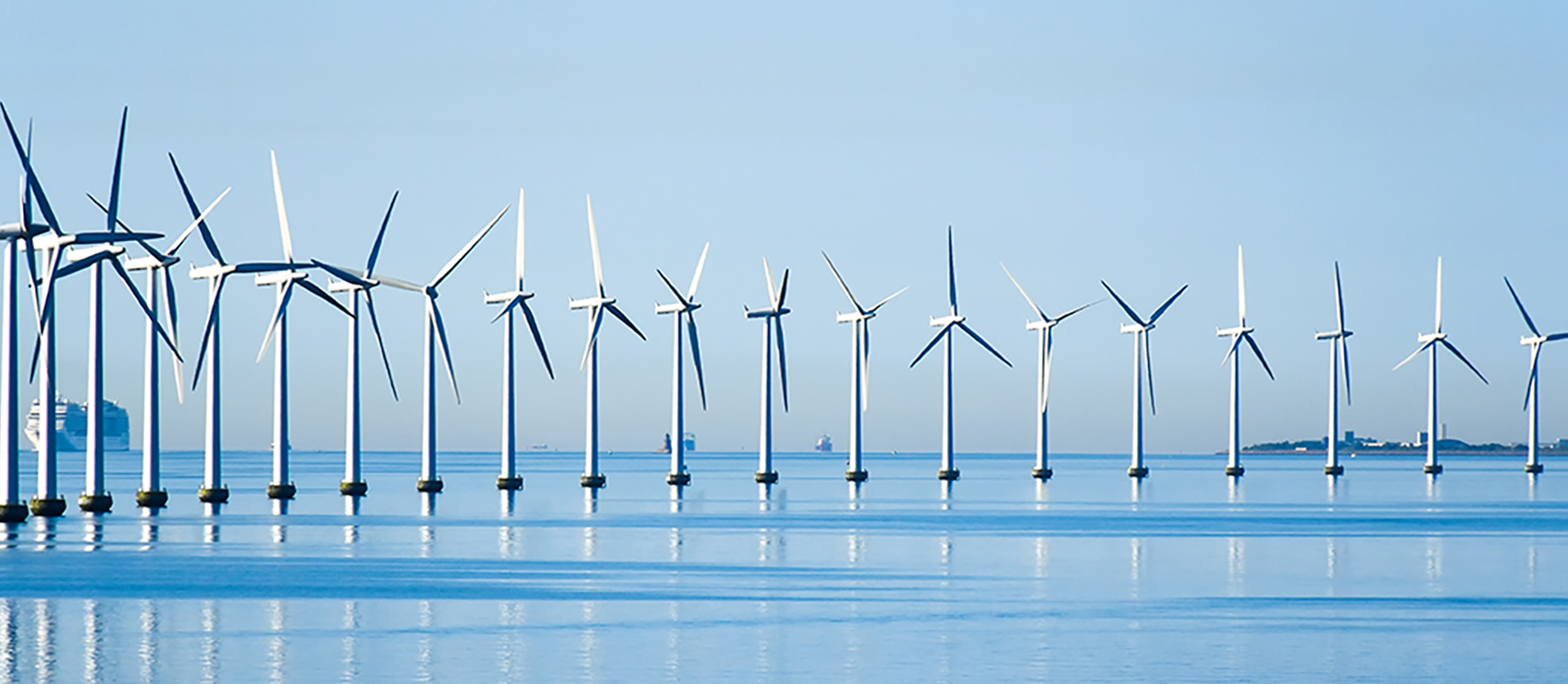
|
 |
Offshore wind turbines on the coast of Copenhagen in Denmark. Image: Shutterstock |
|
Professor Steven A. Gabriel (Mechanical Engineering/Applied Mathematics, Statistics & Scientific Computation), an expert in mathematical modeling and algorithm design for optimization and equilibrium problems in energy and other infrastructure areas, is a co-PI on a $453K energy markets project funded by the Independent Research Fund Denmark. This project, titled “Energy sector coupling, market equilibrium and decarbonization policies: Consolidation of technical and economic modeling” aims to help the country of Denmark in its goal of transitioning from fossil fuels to renewable energy.
To do this, the country is looking to coordinate cross-sectoral planning in its electricity, heating and gas systems. Professor Gabriel mentions that “Looking at the coupling of these three systems will lead to improvements in efficiency, increase the use of renewable energy, enable additional flexibility to deal with fluctuations in production, and contribute to sustainability and security of supply. This is because the equilibrium models to be developed will be holistic in their purview rather than focused solely on one of these systems at a time”. The new project will provide tools needed to aid the transition to a cleaner energy future.
The principal investigator is Trine Krogh Boomsma, an Associate Professor in the Department of Mathematical Sciences at the University of Copenhagen. In addition to Gabriel, Antonio Conejo, professor of Integrated Systems Engineering at Ohio State University also is a co-PI.
The project will assess the potential for sectoral coupling within a quantitative framework that includes both a technical description of each sector and takes into account market-based interactions between the sectors, including different objectives and inter-competitive conditions. The researchers will develop new models and methods for consolidating the technical and economic aspects.
Planning and optimizing operations and investment will be modeled. Also taken into account will be technical characteristics, establishing equilibrium models for market interactions, and designing policy incentive structures to promote coordinated planning. Given the complexity of the models, an important part of the project will also involve the development of specially adapted solution methods.
“The project will propose planning models for sectoral coupling that can take into account both economic and operational aspects,” says Professor Boomsma, the PI. “I hope that it can contribute with new insights into the potential of sector coupling in terms of market design and regulation.”
This is one of 65 research projects The Independent Research Fund Denmark is currently supporting on green conversion.
| Read the original news story at the University of Copenhagen’s Department of Mathematical Sciences website |
Related Articles:
Al-Obaid, Adomaitis publish renewable energy algorithm in Royal Society of Chemistry journal
Gabriel spending academic year in two visiting professorships
New model can help decisionmakers planning to retrofit buildings for energy efficiency
When does a package delivery company benefit from having two people in the truck?
Michael Fu part of $1M NSF grant to model, disrupt illicit kidney trafficking networks
ASTrA project to provide new tools for power generation, robotics, smart manufacturing
Michael Fu part of NSF project to improve kidney transplant access and decision-making
Hybrid inverse optimization can help in modeling natural disaster responses
NSF grant will further planning for collaborative autonomy testing infrastructure
Mathematical modeling to guide building inspectors after earthquakes
February 4, 2021
|

